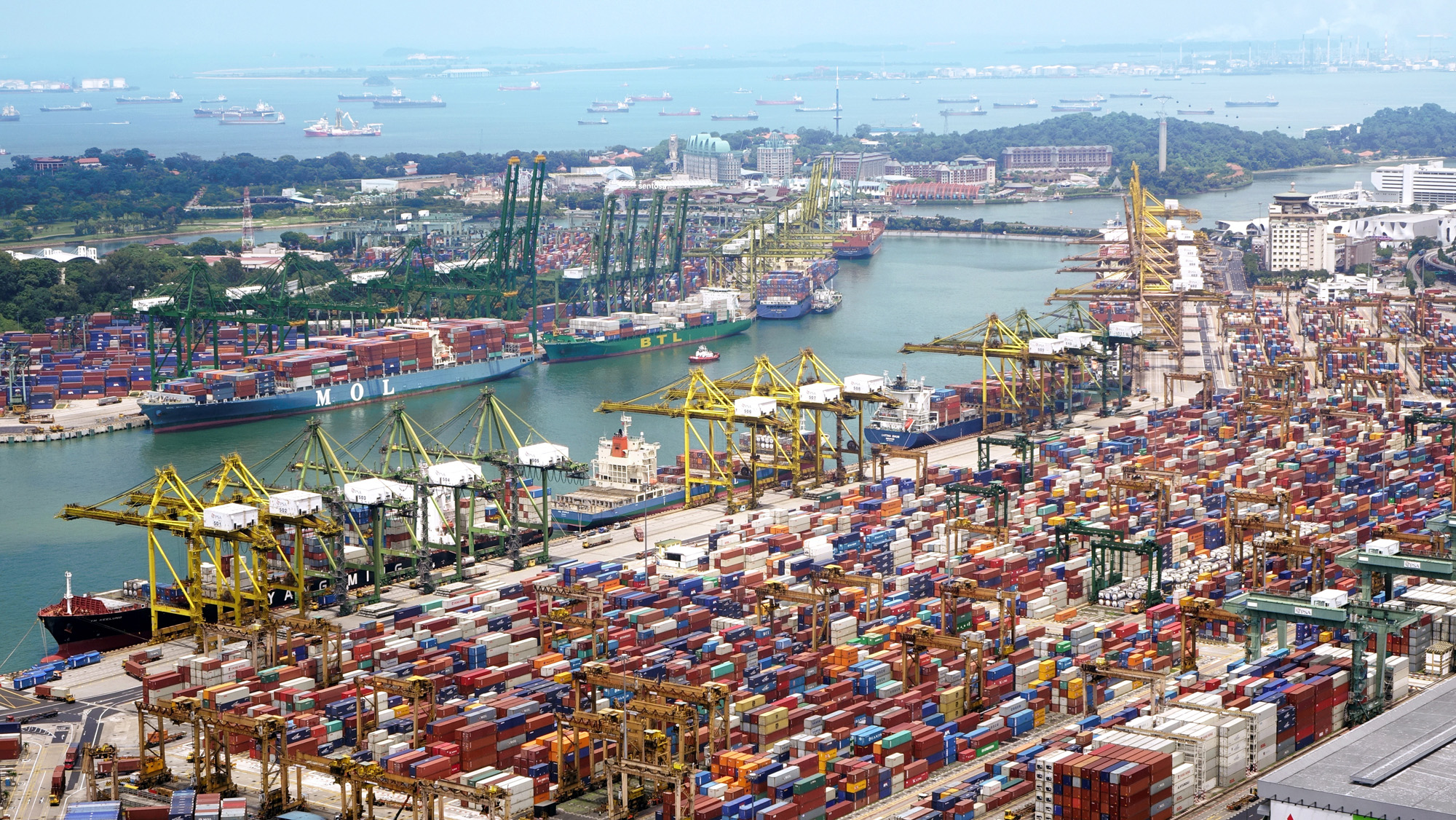With little demand for transport and disrupted logistics chains, Wouter Beelaerts van Blokland believes that new ideas are needed for the economy and transport.
What does Covid-19 mean for international transport? (Photo: Pxhere)
An important source of inspiration for the globalising world is the book The World is Flat by New York Times journalist Thomas Friedman published in 2005. It was the first time the ‘platform economy’ is mentioned, in which organisation, production, logistics and supply chains became dominated by digitisation. Data also started to intrude into the private sphere in the form of social media. This setting made it possible for worldwide logistics and supply chains to emerge that created a type of hyper competition and ultimately delivery to homes.
One consequence of the move towards a platform economy was that industrial production and development from the United States and Europe in particular, seeped away to Asia. Computer companies such as Apple, HP and Cisco started to work with contract manufacturers and satellite factories. Car manufacturers BMW, Daimler and VW followed their example setting up satellite factories that mostly serve local markets. Over the last 15 years, markets had the space for unbridled growth. Producers grew in parallel, but whether employees benefited, is the question. The world was ‘flattened’ by the Anglo Saxon business model in which maximising profit and shareholder value were leading.
Disruption
The outbreak of Covid-19 and the disruption of the world economy that it is causing, is clearly showing that the world is becoming vulnerable to the disruption of global transport flows. This is because economies and markets are connected across the world. If people no longer gain from the global transport network and profits for one comes at the cost of loss for another, disruption will certainly follow. You can imagine that the world should become less ‘flat’ and more ‘round’ again. It seems that the world under Covid-19 resembles a vacillating mammoth tanker without bulkheads as these have been ‘optimised away’.
What can we learn from this?
What we can learn from this is that we could reduce the vulnerabilities of a logistics chain by using goods closer to home. This covers food too. It takes much effort to get avocados and kiwis here, not to mention CO2 emissions. Fortunately, consumers are buying more locally produced food.
Risks to healthcare services could be limited by jointly developing medicines in Europe. It is also important to continue working on our European standards in relation to socio-economic issues such as CAOs (collective labour agreements) and digital communication.
Reciprocity
Have we not become too dependent on monopolies and countries that are less conscientious about human rights and labour rights? Worldwide logistics chains make us vulnerable to geopolitical and health risks, as well as to risks related to the labour market and labour law, and risks for consumers.
In contrast to the Anglo Saxon Model, the Rhineland Model protects society from these types of risks through the principles of collaboration among stakeholders such as employees, employers, citizens and striving for consensus in decision making. This model is visible in the Netherlands in the Klimaattafels (‘climate tables’ in which citizens and specialists discuss climate issues, eds.) and in consultation about pensions. The Rijnlandse model involves working with other trade blocks with the intention of reciprocity and maintaining the same standards. One of the goals is to make the entire logistics chain transparent and sustainable.
Dr Wouter Beelaerts van Blokland is Assistant Professor in the section Transport Engineering and Logistics in the Faculty of Mechanical, Maritime and Materials Engineering (3mE).
Opinion / Our platform is open to well written and well argued opinion articles written by students and employees of TU Delft. The maximum word count is 700. Email us at delta@tudelft.nl.



Comments are closed.